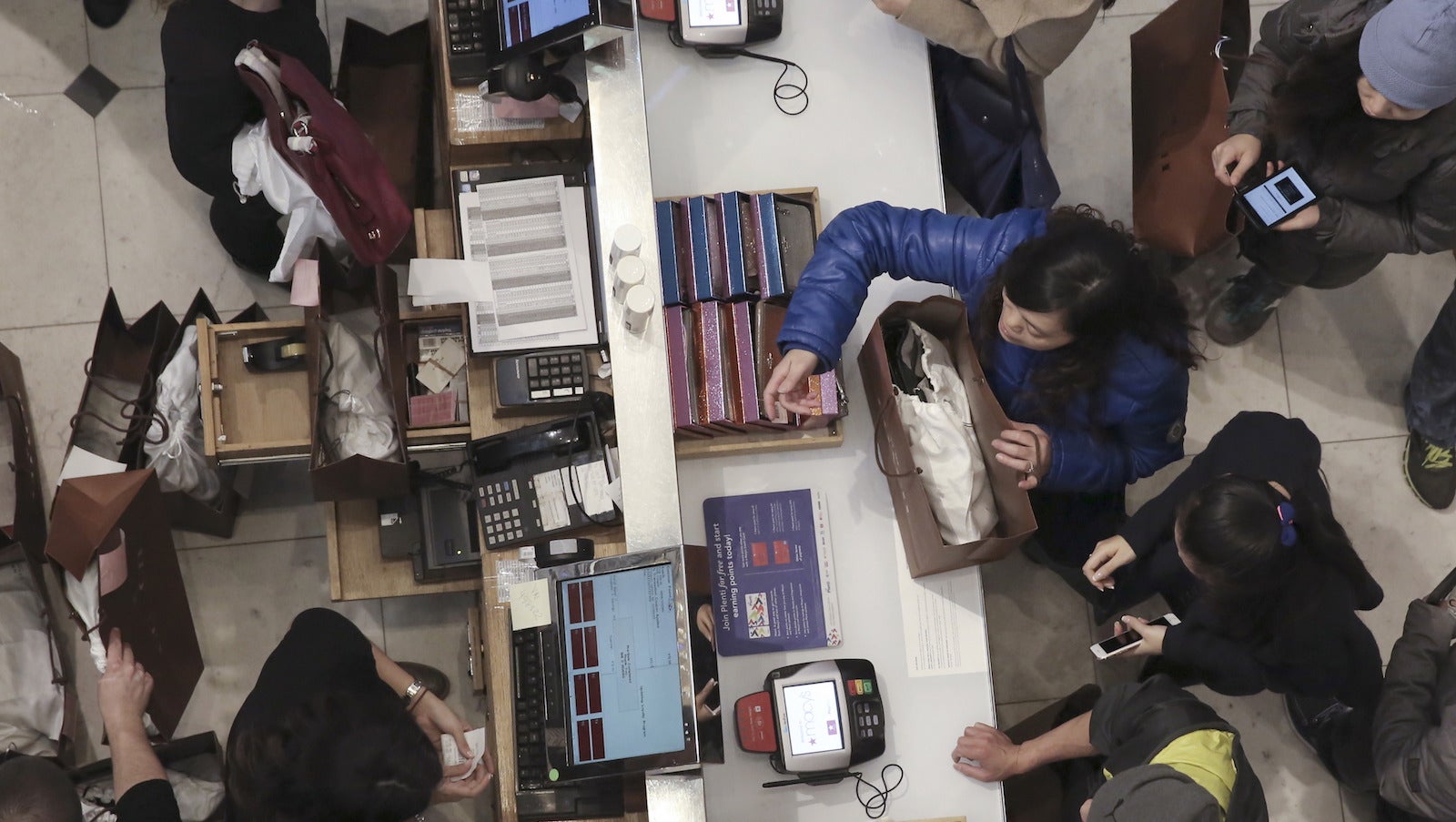The sneaky genius of America’s lenient return policies
As any American who loves face masks and lip plumper can attest, Sephora has a notoriously lenient return policy. They take back products–opened, used, even expired–no questions asked. But the company does this only in the United States. In Sephora stores in Singapore, France, and the United Arab Emirates, customers have just 14 days to return their purchases. Canada is a little more lenient with a 30-day leeway. And in most of these countries, there are no returns whatsoever for an opened product—no exceptions. So why are the policies within the same brand so vastly different across countries?


As any American who loves face masks and lip plumper can attest, Sephora has a notoriously lenient return policy. They take back products–opened, used, even expired–no questions asked. But the company does this only in the United States. In Sephora stores in Singapore, France, and the United Arab Emirates, customers have just 14 days to return their purchases. Canada is a little more lenient with a 30-day leeway. And in most of these countries, there are no returns whatsoever for an opened product—no exceptions. So why are the policies within the same brand so vastly different across countries?
The answer has everything to do with the nature of American commerce. Today, American consumers are conditioned to expect some type of insurance or guarantee on their purchases. Many US-based brands, including REI, Zappos, Bed Bath & Beyond, Staples, Nordstrom, and Costco, boast proudly of their liberal attitudes toward returns. These perks are positioned as an extra reward for customers, a sign that retailers are willing to bend over backward to satisfy them. For example, Zappos promises, “If, for any reason, you are unsatisfied with your purchase from Zappos Retail, Inc. you may return it in its original condition within 365 days for a refund. We’ll even pay for return shipping!”
The rise of e-commerce has also contributed to today’s return policies. As a product bought online instead of IRL has a much greater chance of not being what you hoped it to be, returns have become even more important for consumers. An analysis by Granify, an online retail consulting company, found that return policies are the most important factor in online purchase decisions, often surpassing price.
Companies in the US capitalize on the psychology of buyer’s remorse. As Nordstrom writes, “We hope to build trust with our customers and create a relationship with them for the long term.” Likewise, Zappos reported that customers who returned up to 50% of their orders are incidentally also their most profitable.
There is definitely a financial incentive to go along with customers’ whims. A recent study published in the Journal of Retailing, conducted by Narayanan Janakiraman, Ryan Freling, and Holly Syrdal, found that lenient policies consistently lead to both increased returns and purchases, with a greater impact on purchase proclivity. So despite the substantial cost or lenient return policies for retailers (product returns cost US companies $284 billion in 2015), it still drives sales in the long run.
Janakiraman, one of the authors of the study, is an assistant professor of marketing at the University of Dallas-Texas who specializes in consumer behavior. He says that countries with similar GDPs and income rates don’t employ the same return policies. There are several possible factors that inform this difference. One is that once the no-questions-asked policy became an institution in the US, it became harder for individual companies to skirt it. When the first US companies started implementing them, “others followed suit, and pretty soon you have the whole industry offering return policies.” Because other countries haven’t yet had companies play into this mode of thinking, they haven’t yet entered the spiral.
As the US is a large market with many companies competing for their consumers’ dollars, they also have more of an incentive to find ways to stand out and please customers. If France doesn’t have a multinational mega-store equivalent to Staples or REI, retailers there may not go to the same lengths to find an extra competitive edge by accepting returns willy-nilly. “If your competitive pressure is much lower or if you’re a monopoly, why offer it?” Janakiraman says.
Then there’s the issue of good faith: A return policy is in the US serves as a reciprocal contract. As Nordstrom writes, “Our philosophy is to deal with you fairly and reasonably; we hope you will be fair and reasonable with us as well.” L.L. Bean has a similar mentality: “Our guarantee is a handshake—a promise that we’ll be fair to each other.” Employees are required to remain neutral and refrain from revealing judgement or asking questions, regardless of how ludicrous the customer’s claim of “dissatisfaction.”
This type of open-ended policy is predicated on a basic level of trust between consumers and companies that has been proven to be relatively higher in the US than in other areas of the world. But as with any trust-based model, once enough people take advantage (such as the person who returned their 30-year-old backpack to REI in exchange for cash), companies become risk-adverse. This explains why some US retailers have tightened their policies in the last few years.
Still, as the summer comes to an end, some exploitative customers will inevitably return seasonal items such as beach chairs and surfboards. At many companies, they’ll be able to swap these returns in exchange for heavily discounted goods this Labor Day—no questions asked.